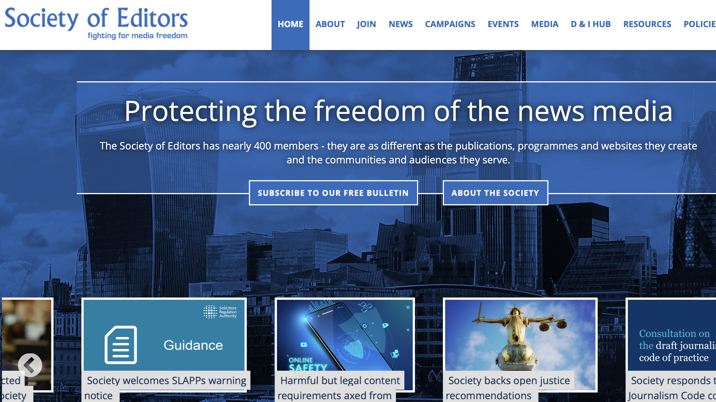
The Society of Editors has hailed a decision by the College of Policing to reject calls to allow forces to decide whether or not to name suspects once charged, as “a huge victory for press freedom”.
The decision by the College to reject proposals contained within a draft revision of its Media Relations guidance follows widespread criticism by the Society, Crime Reporters Association and others last week that forces across England and Wales could soon be given the option of whether or not to name suspects once charged with an offence.
In a statement issued on Friday 24 March, the College confirmed that following a meeting with the Information Commissioner’s Office today, the decision had been made to “maintain the current position” that those charged with an offence “have no reasonable expectation of privacy” and should be named.
In a statement, the College of Policing’s chief executive Andy Marsh said that “an open, transparent, and professional working relationship” between the police service and the media remained essential to public trust.
He added: ““Our guidance to police forces is clear that at the point an individual is charged with a crime, there should be no reasonable expectation of privacy. We believe this is strongly in the public interest and compatible with data protection law.”?
Responding to the announcement, Dawn Alford, executive director of the Society of Editors said: “The decision by the College of Policing to reject a proposal to grant forces the option or whether or not to name an individual upon charge is a huge victory for press freedom.
“Open justice remains one of the fundamental cornerstones of our democracy and media reporting not only keeps communities safe, but it also helps ensure that offenders are brought to justice. We are glad that common sense has prevailed, and we look forward to continuing to work with the College to ensure that any changes to the guidance strengthen rather than impede the public’s right to know.”
The Society had last week branded the proposals to revise the College’s current media relations guidance as “deeply concerning”. In what it described as “misplaced concerns around data protection and defendants’ privacy rights”, the Society criticised plans to change guidelines stating that suspects “should be” named upon charge, to “can be named”. Other proposals included a recommendation that charging information is only released for “crimes of a serious nature such as rape or murder” or where the incident had already been reported in the media or on social media sites.
Keep up-to-date with publishing news: sign up here for InPubWeekly, our free weekly e-newsletter.











